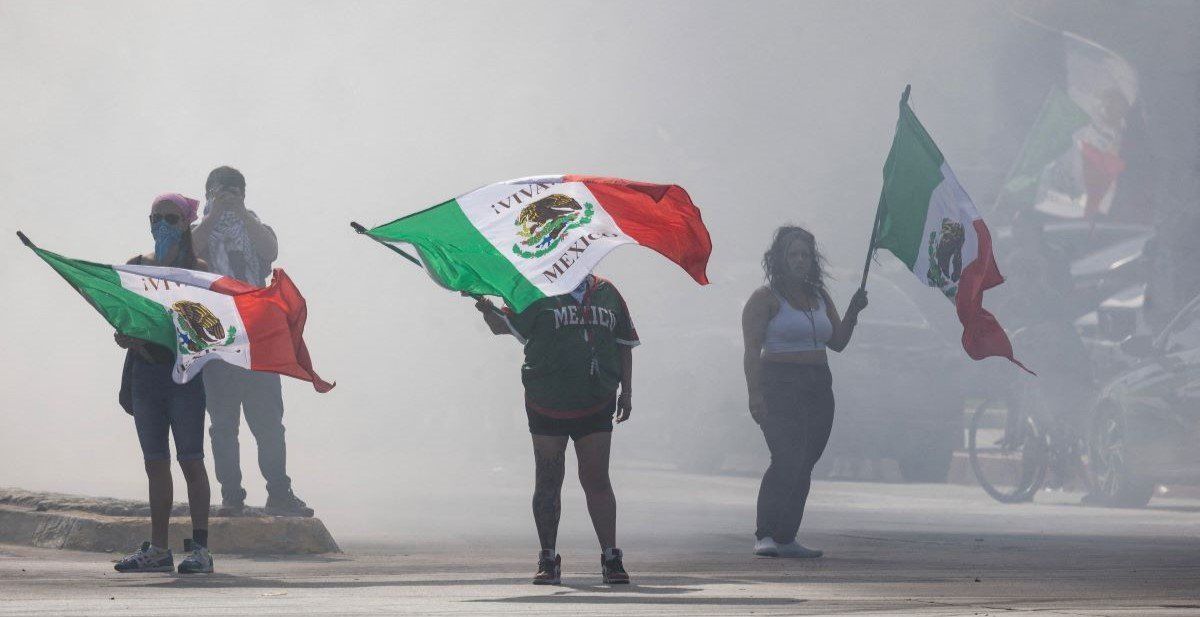Trump deploys National Guard to LA
On Saturday, US President Donald Trumpdeployed 2,000 National Guard troops to Los Angeles to quell protests against ICE immigration raids. Several hundred demonstrators, some carrying Mexican flags, clashed with police Friday and Saturday in the predominantly Latino neighborhood of Paramount, at times dispersed withbatons and tear gas.
How can Trump bring in the National Guard? While VP JD Vancedenounced the protestors as "Insurrectionists carrying foreign flags”, the White House did not invoke the Insurrection Act.Instead, Trump used a similar statute to “federalize”, i.e. take control, of state national guard troops, who are expected to arrive in LA by Monday. California Governor Gavin Newsom has condemned the action as “purposefully inflammatory.”
US and China talk trade in London
US‑Chinatrade talks opened in London today, following President Donald Trump’sphone call last Thursday with Chinese President Xi Jinping. The USwill be represented by Treasury Secretary Scott Bessent, Commerce Secretary Howard Lutnick and Trade Representative Jamieson Greer, while China is sending Vice Premier He Lifeng.
The goal? Salvaging a 90‑day tariff truce struck in May, whichlowered levies to 30% and 10% on US and Chinese exports, respectively. The sticking points? US export controls on semiconductors and AI chips, China’s rare‑earth export restrictions, and Washington’srecent revocation of Chinese student visas. The asks? Washington wants Beijing to open up rare-earth supply chains, while Chinaseeks relief from tech sanctions.
Russia-Ukraine war escalates – again
Peace seems further away than ever as the three-year-old war between Russia and Ukraine heats up again. On Sunday the Kremlin announced that Russian forces hadreached the Ukrainian region of Dnipropetrovsk. The central area is an important mining and industrial hub, and has not yet been a conflict zone; disruption to its supply chains couldseriously impact Ukraine’s economy and military as a whole.
Trading blows. The advance follows Russia’slargest aerial bombardment of the war last Friday, killing at least six people and injuring dozens more,in retaliation to Kyiv’s assault earlier in the week on a fleet of strategic Russian warplanes. Over the weekend, Kyiv then attempted to strike Moscow with ten drones. The weapons were intercepted by Russian forces but caused a brief fire at a nearby chemical plant, raising the spectre of further ripostes.
